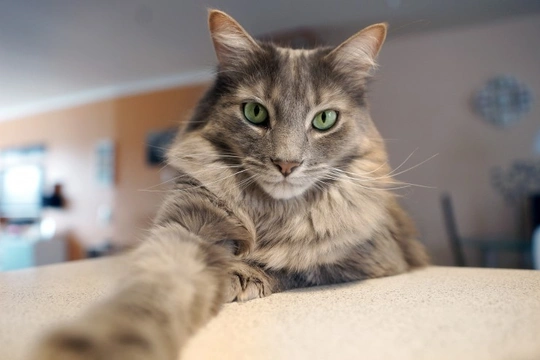
Five common substances in your home that you may not know can make your cat ill
Most cat owners have a basic grasp of the various different plants, products and substances that can make their cats ill, but there is always room to learn more! While poisoning in cats is relatively unusual because cats are very finicky about what they eat and will avoid anything that tastes or smells funny, it can still occur-either because your cat ingests something poisonous, or because it comes into contact with their skin and then lick it off.
Whether your cat goes outside or is confined to your home, it is a good idea to learn as much as possible about potential household toxins and other common substances that are bad for your cat. This will allow you to both pre-empt potential problems, and so that you will be able to react faster if your cat displays symptoms that might indicate poisoning.
In this article, we will look at five common things that most people have in or around the home that can be toxic or poisonous to cats. Read on to learn more.
Glow sticks
Glow sticks are of course something that we associate with parties, children and concerts, but they are something that can be picked up easily from party shops, and even supermarkets and toy stores!
This means that a lot of people will buy them for events such as New Years eve, parties and birthdays, as they can be great fun for both children and adults alike!
Many people have wondered from time to time what is actually in the glow stick that makes them glow-and this substance itself is actually very bitter-flavoured, and potentially toxic.
Because glow sticks have to be child safe, ingestion of the glowing liquid is rarely serious or fatal, but if your cat bites through a glow stick or licks up the liquid, they should see a vet.
Ingestion of the fluid can lead to hyper salivation and other symptoms, so stay alert.
E-liquids
E-liquids, vape juice and various other terms are used to refer to the nicotine solution used in E-cigarettes, all of which tend to be sweet flavoured and potentially smell like fruit or candy. These liquids are intended to be vaporised as a cigarette substitute, in which case they are harmless-but if the liquid itself is ingested, the concentration of nicotine can be toxic, and because cats are comparatively small, even a small amount may be harmful.
Treat E-liquids like medicines and keep them well out of the reach of your cat.
Peace lilies
Most cat owners know that lilies are very toxic to cats-but when we think of lilies, we tend to think of the flowers, which are often sold as cut flowers for vases.
However, there are a huge variety of different types of lilies in all shapes and forms, some of which do not look like typical lilies, particularly when not in flower. One of the most common of these is a bright green plant with spear-like leaves calls a peace lily, which does not look much like a lily until they are in flower, and even then can easily be mistaken for other plants.
Check the labels on any pot plants or cut plants that you might be considering buying to ensure that it is not a plant from the lily group, which are very dangerous to cats.
Rodents
Many cats are competent and keen hunters, and around half of those that catch rats and mice will actually kill and eat their prey, which is unpalatable to us as people, but perfectly natural to cats!
However, while we all know that rodenticides (poisons designed to kill pests like rats and mice) are of course poisonous to other animals including cats, they can also be ingested indirectly, once again posing a risk.
If a rodent has eaten a poison of some type, they will not die instantly-but as they become progressively more sick, they will be slower and less able to defend themselves, and so, easier to catch by a cat.
If your cat then eats a rodent that has been poisoned, they will of course ingest the poison itself, which can lead to acute illness. Ensure that you do not use poisons at home, and keep an eye out for problems if your cat is apt to eat rodents.
Canine flea products
Finally, most people use flea and tick products for their cats and dogs that come in a small pipette to apply to the back of the animal’s neck. These pipettes may look the same, but the ones designed for dogs often include an added ingredient called Permethrin, which is totally safe for dogs in the appropriate dosage, but toxic to cats.
Never use a dog flea product on your cat, and if you find an odd pipette in the cupboard and are not sure, play it safe.



